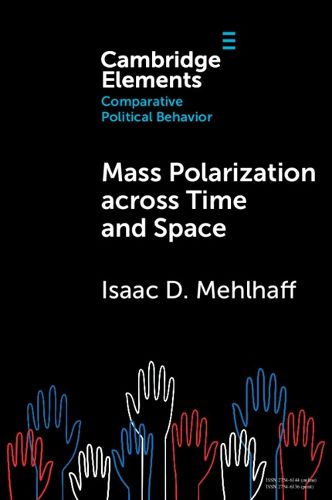Readings Newsletter
Become a Readings Member to make your shopping experience even easier.
Sign in or sign up for free!
You’re not far away from qualifying for FREE standard shipping within Australia
You’ve qualified for FREE standard shipping within Australia
The cart is loading…






Mass polarization is one of the defining features of politics in the twenty-first century, but efforts to understand its causes and effects are often hindered by empirical challenges related to measurement and data availability. To address these challenges and provide a common standard of analysis for researchers, this Element presents the Polarization in Comparative Attitudes Project (PolarCAP). PolarCAP clearly defines polarization as a property of group relations and uses a Bayesian measurement model to estimate smooth panels of ideological and affective polarization across ninety-two countries and forty-nine years. The author uses these data to provide a descriptive account of mass polarization across time and space. They further show how PolarCAP facilitates substantive inference by applying it to three sets of variables often hypothesized as causes or consequences of polarization: institutional design, economic crisis, and democracy. Open-source software makes PolarCAP easily accessible to scholars and practitioners.
$9.00 standard shipping within Australia
FREE standard shipping within Australia for orders over $100.00
Express & International shipping calculated at checkout
Mass polarization is one of the defining features of politics in the twenty-first century, but efforts to understand its causes and effects are often hindered by empirical challenges related to measurement and data availability. To address these challenges and provide a common standard of analysis for researchers, this Element presents the Polarization in Comparative Attitudes Project (PolarCAP). PolarCAP clearly defines polarization as a property of group relations and uses a Bayesian measurement model to estimate smooth panels of ideological and affective polarization across ninety-two countries and forty-nine years. The author uses these data to provide a descriptive account of mass polarization across time and space. They further show how PolarCAP facilitates substantive inference by applying it to three sets of variables often hypothesized as causes or consequences of polarization: institutional design, economic crisis, and democracy. Open-source software makes PolarCAP easily accessible to scholars and practitioners.